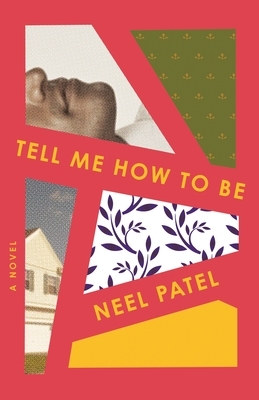Tell Me How to Be, by Neel Patel

This was another of those “devour it in a day” books. I fell right into this story and didn’t emerge for a breath until it was finished (well, I did fall asleep at about 1 am, but then woke up at 7:30 and finished reading it).
Renu is a middle-aged widow living in a small city in Illinois, having emigrated to the US from London (she is originally Indian from Tanzania and went to university in England) with her doctor husband Ashok. There she raised two sons, but with Ashok dead and her sons grown up, she has sold the house and plans to return to England. She invites her sons home for a puja to mark the one-year anniversary of their father’s death, and also to help her pack up their childhood home and move out.
Akash is Renu’s younger son, always eclipsed by his older and more successful brother who followed in their father’s footsteps to become a doctor. Akash is gay, but not out to his family or anyone back home; he’s an alcoholic whose drunken mistakes have caused his family a lot of heartbreak; he’s an aspiring but as-yet unsuccessfuly R&B songwriter who lives in LA being supported by an older boyfriend that he doesn’t really love, but relies on. It’s not the ideal time for a family reunion.
The story is told in alternating chapters from both Akash’s and Renu’s points of view, and I loved both of them. They are both such flawed, hurting people; both of them have made big mistakes and neither is consistently likeable but they are believable and I empathized with both and wanted them to be happy. Through the course of the few days Renu and her sons spend closing up their old home, both Renu and Akash have the opportunity to reconnect with a lost love from the past — someone who, for each of them, has kept them stuck in the past of “what might have happened if …?” Both stories were poignant and, to me, completely engaging.
This novel’s insightful exploration of the immigrant experience, racism, homophobia, and so many other “big issues” is focused through the precise lens of this one family, this mother and son, their specific experiences — and I believe making big issues personal is what great fiction does best. This is great fiction. The novel ended in a satisfying place as well — no happily-ever-afters, and in each of the two storylines I felt there was one important thread left unresolved — but then, isn’t that like life? I really, really enjoyed this book.



